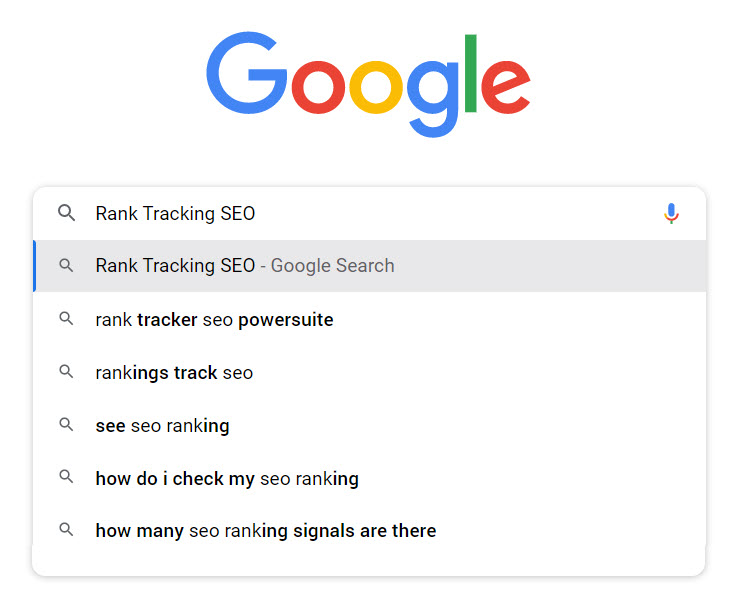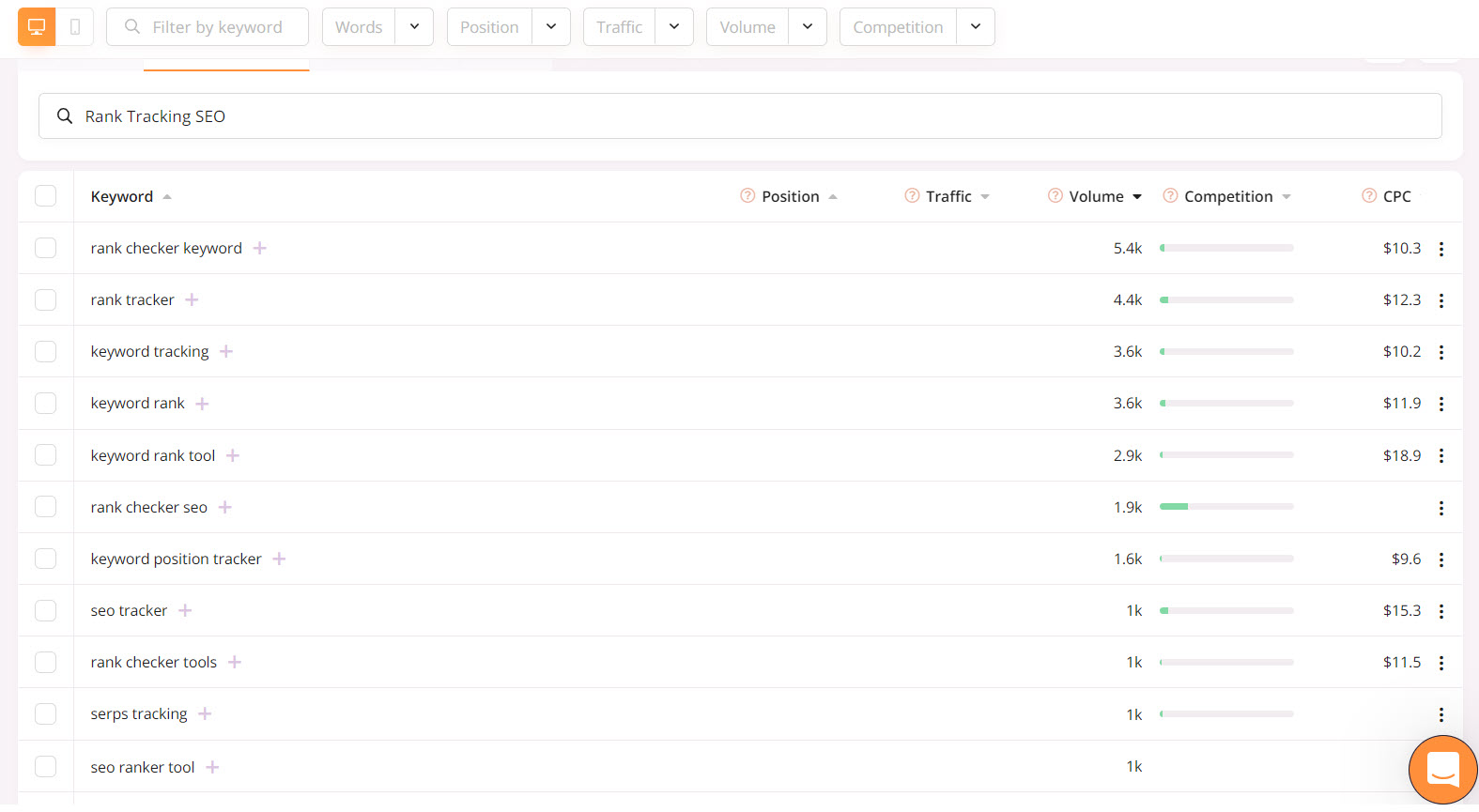How to Find Keywords
Most people have some idea of the keywords they want to rank for in Google. But it’s impossible to know everything people search for. That’s why it pays to do some research to find more keyword ideas. With more ideas comes more opportunities.
There are many ways to do this, but using a keyword research tool is the easiest.
Most of these tools work in the same way. You enter a few broad keywords related to your industry. These are called seed keywords. Once you define a seed keyword, the tool provides you with additional related keyword ideas. Some of these you may not have considered. Some of these additional keyword ideas may be excellent opportunities, and you may not have any content specifically designed to rank for these keyword ideas. No content means no chance (or almost no chance) to rank.
For example, you may be an SEO Consultant, and you want to rank for SEO-consultant-related terms and specifically rank tracking SEO keyword phrases. A seed keyword might be “rank tracking SEO.”
Let’s get some ideas directly from Google. If we type “Rank Tracking SEO” into the Google search field, we see that Google makes some recommendations for us. This is a good way to get some understanding of LSI keywords. LSI stands for Latent Semantic Index, and these keywords relate to phrases that people may search for with the same ‘intent’ for a group of searchers. You may think of them as synonyms, but they are different and more than just synonyms.
Below we can see the keywords suggestion that Google gives us that Google says are related to the seed keyword phrase that we used.

These suggestions from Google are certainly helpful. We can repeat this process with Google for another keyword phrase and gain additional ideas for keywords.
We know that Google connects the original keyword phrase we used (the seed phrase) because Google presents these other phrases to us. The problem is that this is time-consuming. Also, we gain no insight into search volume. We need to know search volume to make proper decisions on what may be a good keyword opportunity and ones that are not so good.
How To Find Keywords with Wincher
Let’s now use Wincher to get some keyword ideas.
On the Wincher Keyword Research page, we can start by going to the Related Keyword tab. This is where we can conduct keyword research, also using a “seed” word. Wincher will then suggest related keywords but with search volume and SEO difficulty insights.
The monthly search volume is significant information. We can decide on the keywords that have sufficient volume for it to be worth our while to create search-engine-optimized content for the keyword. This is important.
The SEO competition level is also something we can see. The level of competition, using Wincher, is heavily based on the number of competitors bidding in the PPC (Pay per Click) auction. It is not an in-depth analysis of how much content and how well the content has been search-engine-optimized for any specific keyword competitor.
The goal is to learn which keywords have sufficiently high volume and a sufficiently low level of competition.
You can easily click on the Competition Tab and see who the specific competitors are and then conduct a more extensive analysis of the competitor.
The Wincher tool is simple and effective. You gain valuable insights into what is being searched for related to your seed keyword. You receive information about which keywords are more competitive and which are less. You can then define content based on sufficiently high search volume opportunities and sufficiently low competition. You want to create content with meaning (search volume) and for a keyword where you can compete.
Once you have completed your research and decided on your keywords, you must create your content. You must optimize your content for search. Finally, you need to monitor your position in search for the keyword(s) and perhaps make adjustments to the SEO after seeing the ranking position after a few of weeks.
Conclusion
Wincher can help streamline the keyword research process and then do the rank tracking, saving you countless hours compared with having to do all this work manually. Wincher will also be more precise than manual research and tracking.
We have also created a page called Wincher FAQs that you may find helpful.


